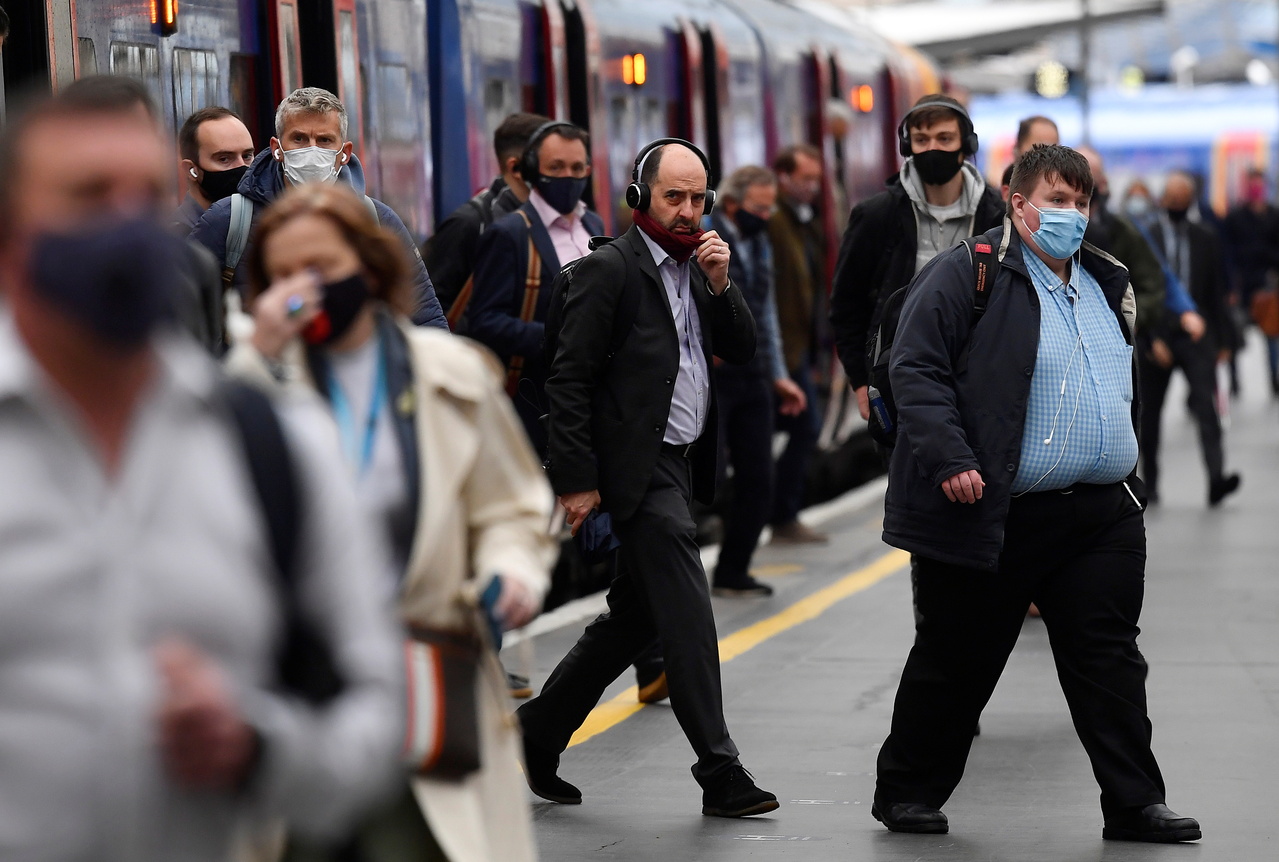UK rethinks its railway as Covid-19 transforms commuter travel
Sign up now: Get ST's newsletters delivered to your inbox

Passenger numbers on Britain's railways plunged more than 90 per cent at the height of the pandemic.
PHOTO: REUTERS
Follow topic:
LONDON (BLOOMBERG) - Britain has set out plans for an overhaul of the world's oldest rail network, including a raft of flexible fares designed to accommodate changes to work patterns triggered by the coronavirus crisis.
A new "national flexi season ticket" available from June 21 will be aimed at passengers who travel only two or three days a week and could save them hundreds of pounds, the Department for Transport said in a statement.
The most radical makeover since the UK railway was privatised 25 years ago will also see train operators handed simpler contracts, replacing the established franchise approach, together with the creation of a new public body - Great British Railways - to better integrate the fragmented system.
Passenger numbers on Britain's railways plunged more than 90 per cent at the height of the pandemic to levels not seen since the mid-nineteenth century.
Prime Minister Boris Johnson has said he intends to end work-from-home guidance from June 21 if Covid-19 infection rates continue to fall.
Even then, commuter numbers may be slow to recover, with many firms making changes that could permanently reduce the number of days spent in the office.
Alongside the new season ticket allowing travel on eight days in a 28-day period, pay-as-you-go fares will also be introduced.
Moves toward digital ticketing on smartphones will accelerate and a complex compensation and refund process will be replaced with a single system for all passengers.
Shares of Trainline Plc, an online ticketing service whose business may be impacted, dropped as much as 22 per cent. It was down 19 per cent at 8.34am, shaving 390 million pounds (S$734.52 million) from its market value.
Rail operators FirstGroup Plc and Go-Ahead Group Plc were little changed.
Flexible pricing
The British Chambers of Commerce welcomed the changes while cautioning that the pricing system must meet the needs of people who need to travel at short notice as well as commuters.
The introduction of Great British Railways will create a national equivalent of Transport for London, which oversees the capital's subway without the direct involvement of the DfT.
The name also harks back to British Railways, as the network was known under state ownership between 1948 and 1997.
"It will become a single familiar brand with a bold new vision for passengers, of punctual services, simpler tickets and a modern and green railway that meets the needs of the nation," Transport Secretary Grant Shapps said in the release, adding that for many people, "the idea of travelling five days a week to the office is fast becoming a relic of the past".
The Confederation of British Industry said the move to independent oversight should boost accountability and combat fragmentation that it said has hampered service improvements.
Snarled roads, packed trains
Concern about the privatised network was mounting long before the virus hit as snarled roads forced more people onto already packed trains and franchises were increasingly awarded to state-controlled European railroads.
Flexible fares and the increase in home working may help ease overcrowding as fewer people travel in peak hours.
The move to abandon franchising enshrines changes already forced on the government by the collapse in travel during the pandemic, and like the establishment of GBR follows recommendations from a review led by Mr Keith Williams, chairman of Royal Mail Plc and former chief of British Airways.
The expanded proposals, taking into account changes wrought by the pandemic, has been named the Williams-Shapps Plan.
Mr Johnson said in the statement he remains a great believer in rail but that the changes are necessary because "for too long, passengers have not had the level of service they deserve".

